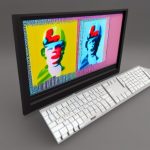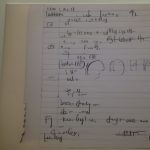10 LPT Study Tips You Probably Haven’t Considered
The LPT (LifeProTips) subreddit is definitely a place you should be checking out if you’re in school and working towards your future. There, you’ll find a lot of basic stuff, but you’ll also find several unorthodox study tips that will make you even more productive. Here are 10 of our favorites.
1. “You get in a fight with your girlfriend or someone across from you is being really loud when you’re trying to study? The more you think about it, the more distracted you’ll get.
“So open up a word document, type everything you’re thinking, and when you’ve run out of things to type about, enjoy your clutter-free mind and get to studying.
“Extra tip: save your thoughts every time you do it and eventually go back and read them all. It’s kind of like a fast pace, non-sense stream of conscious journal of your brain.”
2. “When studying, try writing in a way that makes your notes pleasing to the eye. This will encourage your study habits. Maybe it’s just me because I love pretty penmanship, but this has made me want to study and write stuff so much more. I used to hate taking down notes but ever since I’ve made my notes prettier I’m way more encouraged to actually revise and study.”
3. “Here’s what I seem to find helpful. 1.) create diversity in the way you study. For example, before I go to lecture, I read the corresponding text (visual). Then I go to lecture to reinforce (audio). After, I rewrite my notes, practice drawing structures, or quiz myself by writing down everything I can remember from that section without looking (writing). I often say the notes aloud (if I have a study room) as I review (audio). 2.) does your college let you reserve study rooms? If so, find out how and reserve some ahead of time. This holds you accountable to studying, if the room is reserved, you’re going to show up. It also gives you the chance to have access to a white board (often) to practice writing, and you’re in a private room so you can read aloud, listen to lectures, and study comfortably. 3.) plan ahead! Bring snacks, jackets, copy paper, and anything else you could possibly need to the library. You want to be as comfortable as possible when studying, if not, you’ll leave after only staying an hour.”
4. “To study for a test, pretend you are able to have a cheat sheet and fill it with as many short and concise notes that would help you pass your test. By the time you are done, you will have successfully studied. Whenever I had an exam and was able to make a cheat sheet, I never had to use it because of how much I reviewed in the process of making the sheet.”
5. “Watching lectures to study is a great way to freshen yourself up for an exam or even to cram. However, it can take hours and hours. You can cut a huge chunk of the time by watching it in an increased speed.
“At first it will sound funny but after 1-2 minutes you will stop noticing and you will get used to the sound. Also you can process information a lot faster when comprehending than trying to articulate lecture material so it shouldn’t be too fast. 1.3~1.4X works best for me.”
6. “Before you study, make a list of the top 10 (or more) questions you thing they will ask you on the test. Then answer them thoroughly and memorise the answers. This is great if you’re short on time. Otherwise use this tip before you start your comprehensive study, because if you don’t get through it all, you can bet you at least know a few questions on the test. Unless you can’t guess the questions, then you’re screwed and should study everything.”
7. “At the end of each study session (e.g. a lecture, studying from a book, whatever) spend just a couple of minutes mentally reminding yourself what you learned this session. Try to pick out the most important points. If something important has already slipped your mind, look it up. At the beginning of the next study session, spend a couple of minutes trying to remember what you learned the previous session. Just the most important points. Only a few additional minutes of effort will greatly improve your retention of the important points you have studied, and cut down the amount of revision you will have to do for exams etc.”
8. “When you want to write, study, or read while listening to music, you will find it much more pleasant and will perform much better if you listen to music with no vocals, minimal vocals, or vocals in a language you don’t understand. The reason for this is you will unconsciously try to cognitively process the words of the song when listening to music with lyrics, which will tend to make you feel overwhelmed and make it more difficult to bring all your focus onto what you are writing or reading. This is also why watching tv or movies or listening to some type of spoken word radio show while doing these activities tends to go very badly, at least for me, turning one enjoyable activity and one productive one into a hectic mess with the combination of the two. Classical music, jazz, movie theme songs, and word-free EDF tracks are probably your best bets for this type of multitasking, in that order. And with classical and jazz music at a minimum I think you should find your performance will be improved even compared to just completing your task in silence with full focus.”
9. “Basically, you shouldn’t tell people your goals because: subconsciously: proclaiming a goal makes your brain think you’ve already completed it, giving you a sense of satisfaction without actually doing any of the work; and consciously: you think you’ve already made a step towards your goal, allows you to procrastinate more. Also, it makes you more likely to give up sooner than if you kept your goals to yourself, because you think you have less work left than you actually do.”
10. “I’m sure many of you out there, like me, struggle to get the motivation for jobs/study/cleaning tasks.
“I have always found that it’s much easier to actually pick up a job and start it if you have done some work that makes that job easier when you do start it. These tasks are usually low-hanging fruit, like just getting materials organised, cleaning, easy preparation.
“For example, painting a room. It often takes a lot of preparation and planning just to paint a room, and you can make it much easier to start the job by just finding the things you may need and putting them together, so when the day comes to start painting, you don’t waste time looking for everything. It’s a lot easier to start a major job when you know that you have already made it easier for yourself.”
In Summary
There are no end to the LPT study tips that you can use to make your school and/or professional life go more smoothly. See if any of the above suggestions will work for you, and best of luck!









